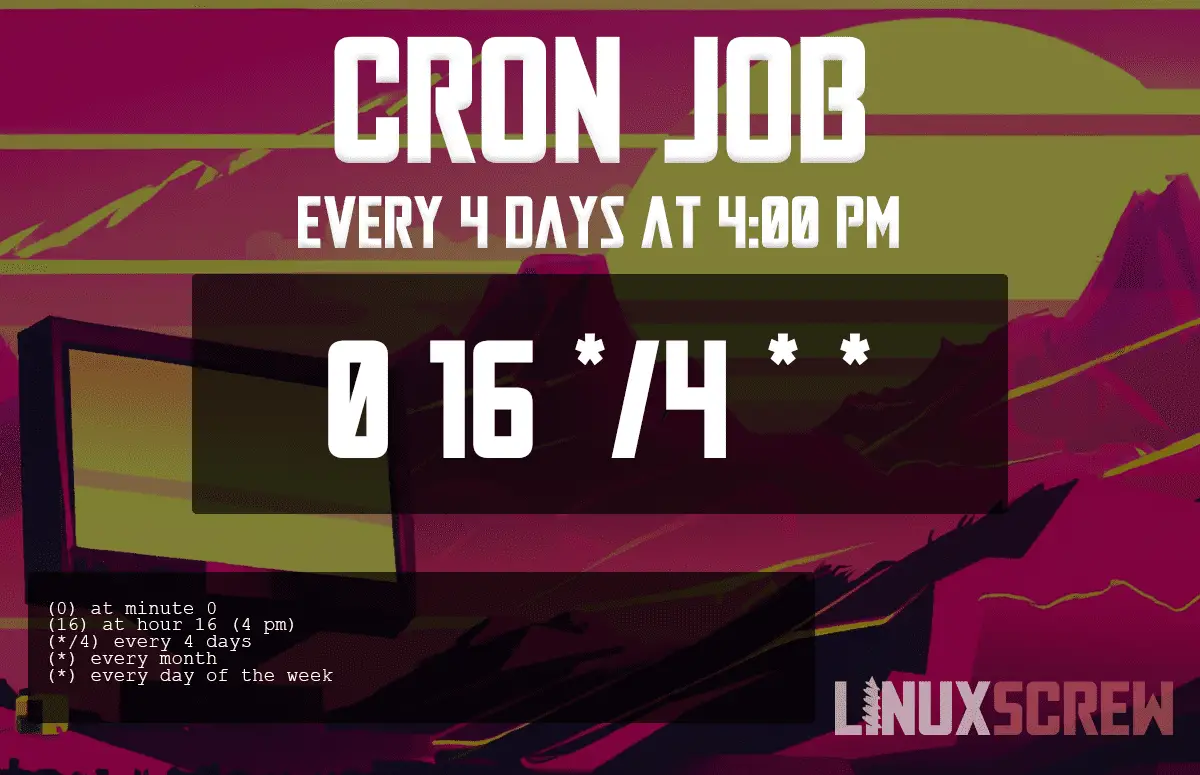This page will help you quickly and easily set up a cron job to run every 4 days at 4:00 pm.
The Cron Job/Crontab
To have your task run at this frequency, use the following cron:
0 16 */4 * *
This cron command translates to the following (in Human-Readable format):
“Every 4 days at 4:00 pm.”
What is a Cron Job & Crontab?
A cron job is a task that is scheduled to run at a specific time or interval. Cron jobs are typically used for automating system maintenance or administration tasks, such as running backups or sending email reports.
A crontab is a file that contains instructions for the cron daemon. The cron daemon is a program that runs in the background and executes tasks at specified times. A crontab file consists of a series of lines, each of which represents a task to be executed. Each line has five fields, separated by spaces or tabs.
Cron Fields
Every cron job uses five fields. Here is an explanation of what each field does in this cron, which runs “every 4 days at 4:00 pm“:
FUN FACT: If you want to edit your personal crontab, just type: “crontab -e” at the command prompt..
Use Cases
You might want to set up a crontab or cron job to run every 4 days at 4:00 pm for several reasons, including:
- Checking for updates to a software package
- Sending out a reminder email
- Generating a report
Similar Cron Jobs
You might also want to run a crontab:
- every 10 days
- every 9 days
- every 6 days
- every 8 days
- every 3 days
- every 4 days
- every 4 days at 8:00 pm
- every 3 days at 5:30 pm
FUN FACT: If a cron job is not properly configured, it might never execute – so make sure you double-check your settings before setting one up!.
Wrapping Up
In this article, you learned how to set up a cron job that runs every 4 days at 4:00 pm. Please share this page with friends and colleagues if you find it useful.
If you have any questions, please don’t hesitate to comment below.
If you are looking for cron jobs that run at certain minutes, hours, days, weekdays, or months, or if you are looking for miscellaneous cron jobs, then check out our relevant sections, or visit our crontab cheat sheet for a list of hundreds of popular cron jobs.

